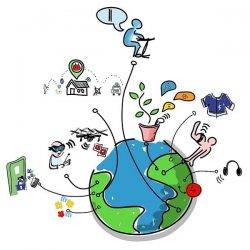November 8, 2018
Workers ignore security concerns by bringing own devices to the office
 Workers are increasingly introducing technology devices, software and other tools into the workplace without their employer’s approval, claims a new report from NextPlane that examines the extent of this growing rift and its impact on collaboration and productivity. Nearly half of professionals (46 percent) said they or their team have introduced new technology into their workplace, and despite IT attempts to remain in control, workers are not standing down, as 53 percent said they or another team have pushed back on IT or management when they tried to dictate the technology they use.
Workers are increasingly introducing technology devices, software and other tools into the workplace without their employer’s approval, claims a new report from NextPlane that examines the extent of this growing rift and its impact on collaboration and productivity. Nearly half of professionals (46 percent) said they or their team have introduced new technology into their workplace, and despite IT attempts to remain in control, workers are not standing down, as 53 percent said they or another team have pushed back on IT or management when they tried to dictate the technology they use.






 People and machines are entering a new era of learning in which artificial intelligence (AI) augments ordinary intelligence and helps people realise their full potential. But CIOs need to prepare workers for a future in which people do more creative and impactful work because they no longer have to perform many routine and repetitive tasks, according to analysts speaking at the
People and machines are entering a new era of learning in which artificial intelligence (AI) augments ordinary intelligence and helps people realise their full potential. But CIOs need to prepare workers for a future in which people do more creative and impactful work because they no longer have to perform many routine and repetitive tasks, according to analysts speaking at the 








 Thanks to technology and mobility, our work has come home with us. So it’s only fair that home should come to work, right? It would seem logical that if people sit in front of a TV on the sofa at home while they work remotely, employees would be thrilled to have a similar set up within their office. However, in the workplaces where we’ve seen companies install couches and big screen TVs, those work spaces are almost never used by employees. Those companies missed the bigger picture. Home is as much an emotional experience as a physical one.
Thanks to technology and mobility, our work has come home with us. So it’s only fair that home should come to work, right? It would seem logical that if people sit in front of a TV on the sofa at home while they work remotely, employees would be thrilled to have a similar set up within their office. However, in the workplaces where we’ve seen companies install couches and big screen TVs, those work spaces are almost never used by employees. Those companies missed the bigger picture. Home is as much an emotional experience as a physical one.




 The rise of data and digitisation has led to the demise of the traditional working day for many CEOs, with a third now checking business analytics first thing in the morning and last thing before they go to bed. This peaks at 54 percent among 25-34 year olds but drops to just 5 percent for leaders over 45, who are much more fixed to their desk. According to the research by Domo (registration required), 80 percent of these leaders prefer to wait until they are in the office to check in. Three quarters (71 percent) of CEOs across the UK and Ireland believe their business could be at risk from current blind spots in data access and skills, however, there is another demographic split. 84 percent of CEOs age 25-34 said it could be a risk, compared to just half of over 55s.
The rise of data and digitisation has led to the demise of the traditional working day for many CEOs, with a third now checking business analytics first thing in the morning and last thing before they go to bed. This peaks at 54 percent among 25-34 year olds but drops to just 5 percent for leaders over 45, who are much more fixed to their desk. According to the research by Domo (registration required), 80 percent of these leaders prefer to wait until they are in the office to check in. Three quarters (71 percent) of CEOs across the UK and Ireland believe their business could be at risk from current blind spots in data access and skills, however, there is another demographic split. 84 percent of CEOs age 25-34 said it could be a risk, compared to just half of over 55s.











November 7, 2018
Will technology prove a threat or a godsend in the new workplace?
by Matt Weston • Comment, Technology, Workplace
More →